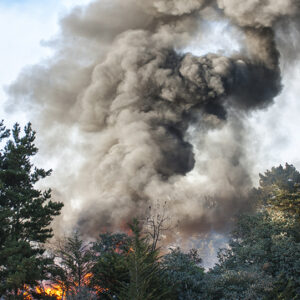Overview
Exposure to cold temperatures, whether indoors or outdoors, can cause serious or life-threatening health problems. To keep yourself and your family safe, you should know how to prevent cold-related health problems.
Basics
What is extreme cold?
"Extreme cold" does not have a set temperature range, as what constitutes extreme cold can mean different things to people in different regions of the world, and even within different parts of the United States. What is important to understand is that below-normal temperatures coupled with increases in wind speed can cause heat to leave the body more rapidly. These kinds of weather conditions may cause serious health problems in people who are susceptible, including those stranded by inclement weather and people living without housing or in housing with inadequate heating or insulation. Colder-than-normal temperatures can sometimes result in health emergencies among vulnerable populations.
Prepare Your Home for Cold Temperatures
Winter survival kit for your home:
- Food that does not need to be cooked or refrigerated, such as bread, crackers, cereal and canned foods
- Water that is stored in clean containers or bottled
- Medicines that you or family members may need
Consider also including the items in the following list in your home survival kit.
Prepare Your Vehicle for Cold Temperatures
As you prepare for winter weather, it is also important to make sure that your car is ready.
- Have maintenance service on your vehicle as often as the manufacturer recommends
- Have the radiator system serviced, or check the antifreeze level yourself with an antifreeze tester
- Replace windshield wiper fluid with a wintertime mixture
- Replace any worn tires and check the air pressure in tires
Weatherproof Your Home
Stay Alert for Hypothermia
Recommendations
Stay Safe and Healthy
Serious health problems can result from prolonged exposure to the cold. The most common cold-related problems are hypothermia and frostbite.
Hypothermia
Hypothermia is the term for abnormally low body temperatures below 95 degrees Fahrenheit.
- When exposed to cold temperatures, your body begins to lose heat faster than it can be produced
- Prolonged exposure to cold will eventually use up your body’s stored energy
- Low body temperature may make you unable to think clearly or move well
Those at greater risk for hypothermia are often:
- Older adults with inadequate food, clothing or heating
- Babies sleeping in cold bedrooms
- People who remain outdoors for long periods, including people living homeless, hikers and hunters
- People who drink alcohol or use illicit drugs
Warning signs of hypothermia include:
- Shivering, exhaustion
- Confusion, fumbling hands
- Memory loss, slurred speech
- Drowsiness
- Bright red, cold skin
If you notice any of these signs, take the person’s temperature. If it is below 95 degrees Fahrenheit, then it is a medical emergency, and you should seek medical attention immediately.
Frostbite
Frostbite is an injury to the body that is caused by freezing. It causes a loss of feeling and color in affected areas. Frostbite mostly affects the nose, ears, cheeks, chin, fingers and toes. It can permanently damage the body and in severe cases, it can lead to amputation.
Signs of frostbite include:
- White or grayish-yellow area of skin
- Skin that feels unusually firm or waxy
- Numbness
Often, a victim is unaware they have frostbite until someone else points it out because the frozen tissues are numb. If you think you have symptoms of frostbite, seek medical care.

Public Health Emergency Preparedness and Response Program
Working with public health partners, health care, and community agencies to respond to area health emergencies.

